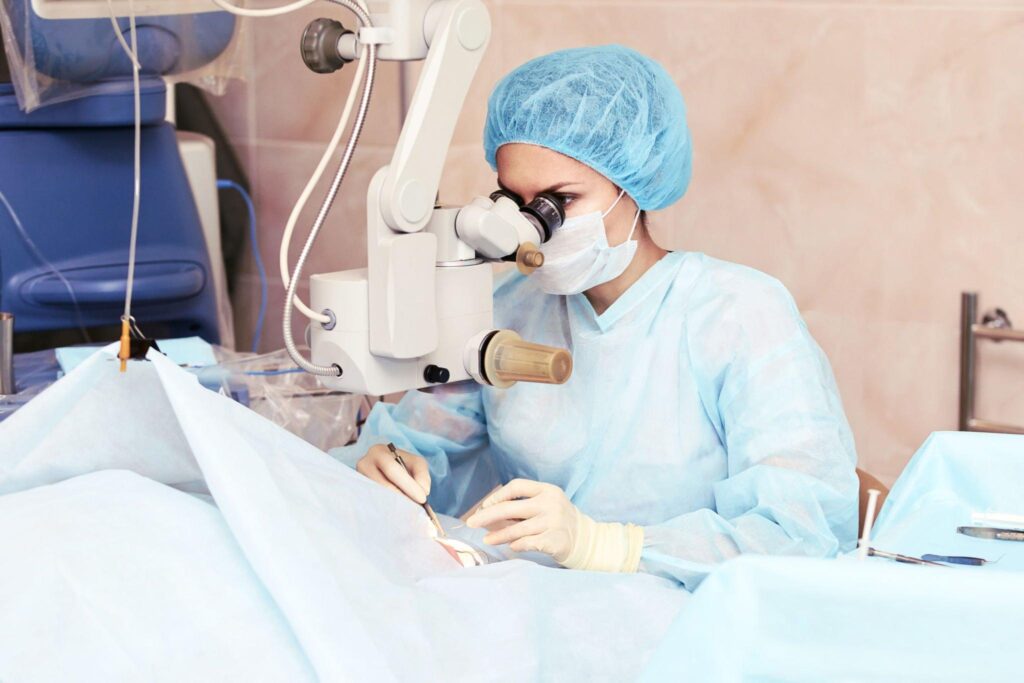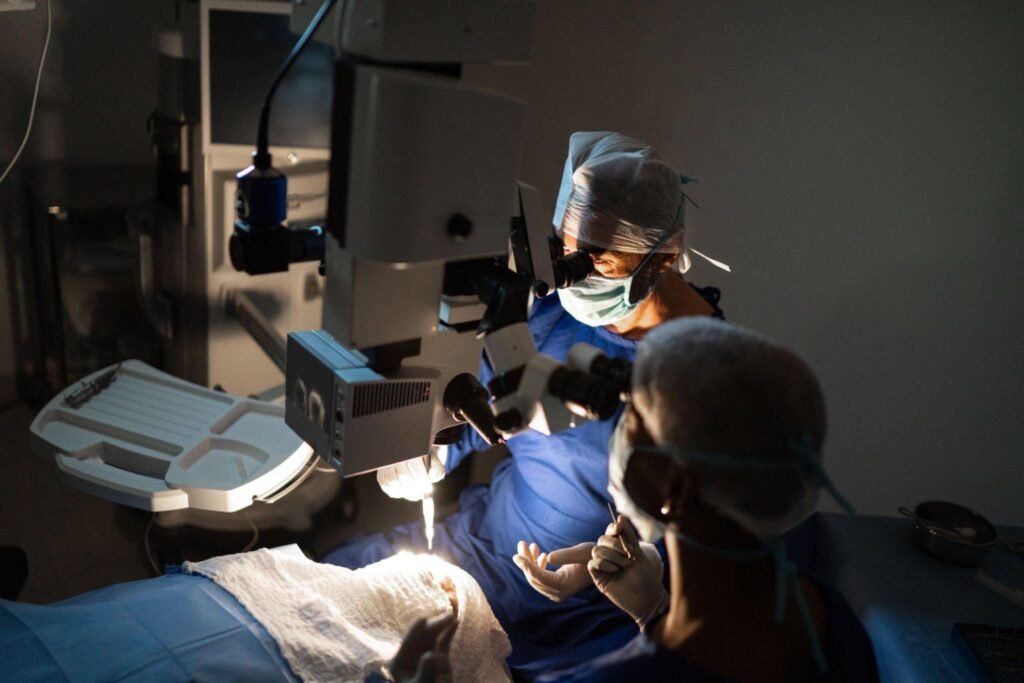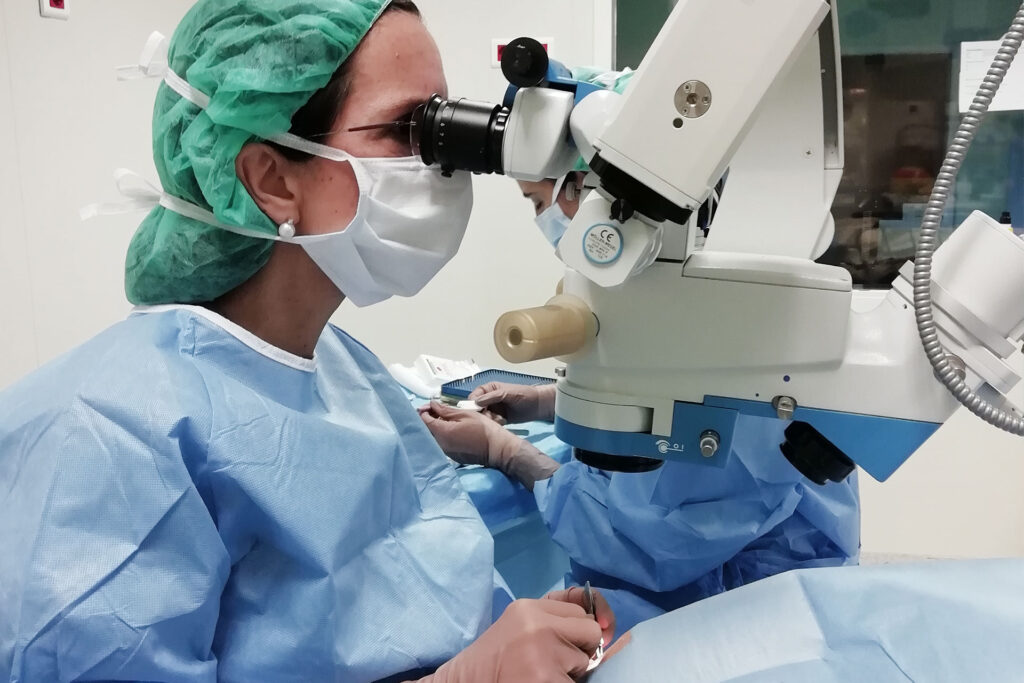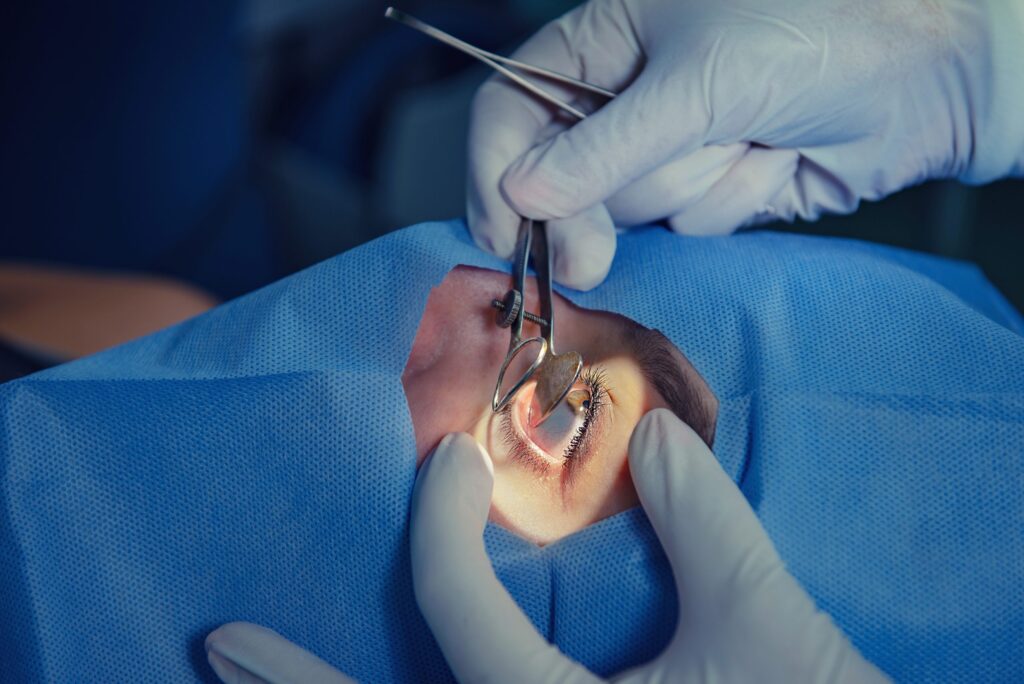Cataracts are a common eye condition that can cause blurry vision and difficulty seeing clearly. Fortunately, modern medicine offers a solution: cataract surgery. Understanding the benefits of this procedure is important for those considering it as an option for their eye health. So, what exactly is cataract surgery and how can it improve your vision and quality of life?
What is Cataract Surgery?
Cataract surgery is a surgical procedure that removes the cloudy lens of the eye, known as the cataract, and replaces it with an artificial lens. The surgery is typically performed on an outpatient basis, meaning patients can go home the same day. It is a safe and effective procedure that has helped millions of people regain clear vision.
The Basics of Cataract Surgery
During cataracts surgery, an ophthalmologist makes a small incision in the eye and uses ultrasound technology to break up the cloudy lens. The fragmented lens is then gently removed, and the artificial lens is inserted in its place. The incision is typically self-sealing and does not require stitches. Most patients experience a quick recovery and notice significantly improved vision shortly after the surgery.
The Procedure of Cataract Surgery
Cataract surgery is a relatively quick procedure, usually lasting less than an hour. Before the surgery, you will receive local anesthesia to numb the eye area, ensuring a comfortable experience. A sedative may also be provided to help you relax throughout the procedure. Your surgeon will guide you through each step, ensuring your safety and well-being.

It is important to note that cataract surgery is a highly specialized procedure that requires the expertise of an experienced ophthalmologist. These surgeons undergo years of rigorous training to develop the skills necessary to perform this delicate surgery. They use state-of-the-art equipment and techniques to ensure the best possible outcomes for their patients.
One of the key advantages of cataract surgery is that it is a relatively low-risk procedure. Complications are rare, but like any surgery, there are potential risks involved. These risks can include infection, bleeding, swelling, and changes in eye pressure. However, your surgeon will carefully evaluate your individual case and discuss the potential risks and benefits with you before proceeding with the surgery.
After the surgery, it is important to follow your surgeon’s post-operative instructions to ensure proper healing and minimize the risk of complications. This may include using prescribed eye drops, avoiding strenuous activities, and protecting your eyes from bright lights or irritants. Your surgeon will schedule follow-up appointments to monitor your progress and address any concerns you may have.
See Also: Exploring the Modern Advancements in Cataract Surgery at Our Vision Clinic
The Benefits of Cataract Surgery
Improved Vision Quality
One of the primary benefits of cataract surgery is improved vision quality. By removing the clouded lens and replacing it with an artificial lens, the procedure restores clear vision. Colors appear more vibrant, and objects become sharper and more defined. Many patients find that cataract surgery allows them to see the world with clarity and precision once again.
Enhanced Lifestyle and Independence
Loss of vision due to cataracts can significantly impact daily activities, such as reading, driving, and enjoying hobbies. Cataract surgery can restore your independence and enable you to continue pursuing the activities you love. With improved vision, you can engage in social interactions, travel, and maintain an active lifestyle with confidence.
Reduced Risk of Falls and Accidents
Cataracts can increase the risk of falls and accidents due to reduced visual acuity. By removing the cataract and improving vision, cataract surgery can help prevent these mishaps. Restoring clear vision enhances spatial awareness and allows you to navigate your surroundings more safely, reducing the risk of falls and other accidents.
Furthermore, cataract surgery not only reduces the risk of falls and accidents but also improves overall quality of life. Imagine being able to confidently walk down the stairs without the fear of misjudging a step. With improved vision, you can enjoy outdoor activities like hiking or playing sports without constantly worrying about your surroundings. The freedom and peace of mind that come with restored vision are invaluable.
In addition to the physical benefits, cataract surgery can also have a positive impact on mental health. Many individuals with cataracts experience frustration, anxiety, and even depression due to the limitations imposed by their impaired vision. By undergoing cataract surgery and regaining clear sight, patients often report a boost in their mood and overall well-being. They feel more connected to the world around them and are able to fully participate in social activities, leading to a more fulfilling and satisfying life.

Preparing for Cataract Surgery
Pre-Surgery Consultation
Prior to cataract surgery, you will have a consultation with your ophthalmologist. This is an important step in ensuring that you are well-prepared for the procedure and have a clear understanding of what to expect. During this appointment, your eyes will be thoroughly examined, allowing your ophthalmologist to assess the severity of your cataracts and determine the most appropriate surgical approach.
In addition to the eye examination, your medical history will be reviewed to ensure that there are no underlying health conditions that could potentially complicate the surgery. It is crucial to provide your ophthalmologist with accurate information about any medications you are taking, as well as any allergies or previous eye surgeries you have had. This comprehensive review of your medical history will help your ophthalmologist tailor the surgical plan to your specific needs.
Furthermore, the pre-surgery consultation is an opportunity for you to ask any questions or express any concerns you may have. Your ophthalmologist will take the time to address these concerns and provide you with detailed explanations, ensuring that you feel well-informed and confident about the upcoming procedure. This open line of communication is essential in establishing a strong patient-doctor relationship and fostering trust throughout the surgical process.
What to Expect on the Day of Surgery
On the day of the surgery, you will be guided through the process by a team of highly skilled nurses and medical professionals who specialize in cataract surgery. Their expertise and experience will help ensure that everything goes smoothly and that you feel comfortable and supported throughout the entire procedure.
Prior to the surgery, your surgeon will reconfirm the details of the procedure with you, addressing any last-minute questions or concerns that may have arisen. This final discussion serves as a reassurance that you are both on the same page and that all necessary preparations have been made.
The cataract surgery itself is usually painless, thanks to the use of local anesthesia. Your surgeon will make a tiny incision in your eye to remove the clouded lens and replace it with an artificial intraocular lens (IOL). This procedure typically takes less than 30 minutes, and you will be awake throughout. The highly precise techniques and advanced technology used in modern cataract surgery ensure optimal visual outcomes and a quick recovery.
After the surgery, you will be given post-operative instructions to follow for a smooth recovery. These instructions may include using prescribed eye drops, avoiding strenuous activities, and wearing protective eyewear. It is important to adhere to these instructions carefully to promote healing and achieve the best possible results.
Remember, cataract surgery is a common and highly successful procedure that has helped millions of people regain clear vision. By understanding what to expect and following your ophthalmologist’s guidance, you can approach the surgery with confidence and look forward to a brighter, clearer future.

Post-Surgery Care and Recovery
Undergoing cataract surgery is a significant step towards improving your vision and overall quality of life. After the procedure, you will be closely monitored in a recovery area for a short period of time to ensure a smooth transition from the operating room to the post-operative phase. This monitoring is crucial as it allows the medical team to assess your immediate recovery and address any concerns that may arise.
It is common to experience some mild discomfort after cataract surgery. However, rest assured that this is a normal part of the healing process. To alleviate any discomfort, your surgeon will prescribe eye drops and pain medication, if necessary. These medications, when used as directed, can effectively manage any post-operative discomfort, allowing you to focus on your recovery.
Long-Term Care and Maintenance
While the immediate aftercare is vital, the long-term care and maintenance of your eyes play a crucial role in ensuring the success of your cataract surgery. Following the surgery, it is essential to maintain good eye health and attend regular follow-up appointments with your ophthalmologist.
During these follow-up appointments, your ophthalmologist will assess the progress of your healing and monitor your vision. They will also provide guidance on any necessary lifestyle adjustments, such as avoiding strenuous activities or wearing protective eyewear in certain situations. By adhering to these recommendations, you can help prevent complications and promote optimal healing.
In addition to regular check-ups, it is important to establish a proper eye care routine. This routine may include gentle cleansing of the eyes, using prescribed eye drops, and protecting your eyes from excessive exposure to sunlight or harsh environmental conditions. By incorporating these habits into your daily life, you can prolong the benefits of the surgery and continue enjoying clear vision for years to come.
Common Misconceptions About Cataract Surgery
Debunking Myths About the Procedure
There are several misconceptions surrounding cataract surgery that can deter people from seeking treatment. It is important to address these myths and provide accurate information. For example, some people believe that cataract surgery is risky or painful, but in reality, the surgery is safe, painless, and highly successful.
Addressing Fears and Concerns
If you have any fears or concerns about cataract surgery, it is crucial to discuss them with your ophthalmologist. They can provide reassurance and guide you through the entire process, ensuring your peace of mind. Remember, cataract surgery is a widely performed procedure with a high success rate.
One common fear that people may have is the potential for complications during or after the surgery. However, it is important to note that cataract surgery is considered to be one of the safest and most effective surgical procedures available today. The risk of complications is extremely low, and the vast majority of patients experience a smooth and uneventful recovery.
Another concern that some individuals may have is the cost of cataract surgery. While it is true that cataract surgery can be an investment, it is important to consider the long-term benefits. Improved vision can greatly enhance your quality of life, allowing you to enjoy activities such as reading, driving, and spending time with loved ones. Additionally, many insurance plans cover cataract surgery, making it more accessible to a wider range of individuals.
In conclusion, cataract surgery offers numerous benefits, including improved vision quality, enhanced lifestyle and independence, and reduced risk of falls and accidents. By understanding the procedure, preparing adequately, and following proper post-operative care, you can embark on the road to clear vision and enjoy the many advantages that cataract surgery provides.

